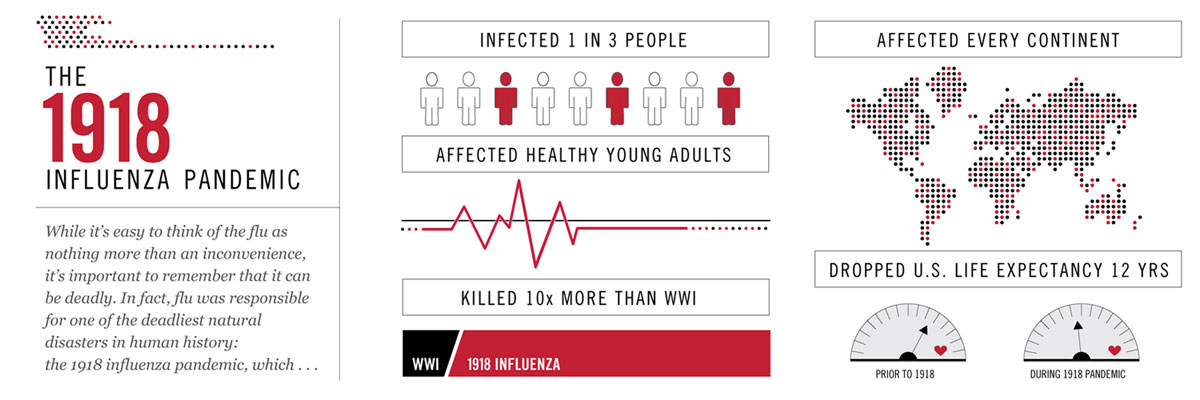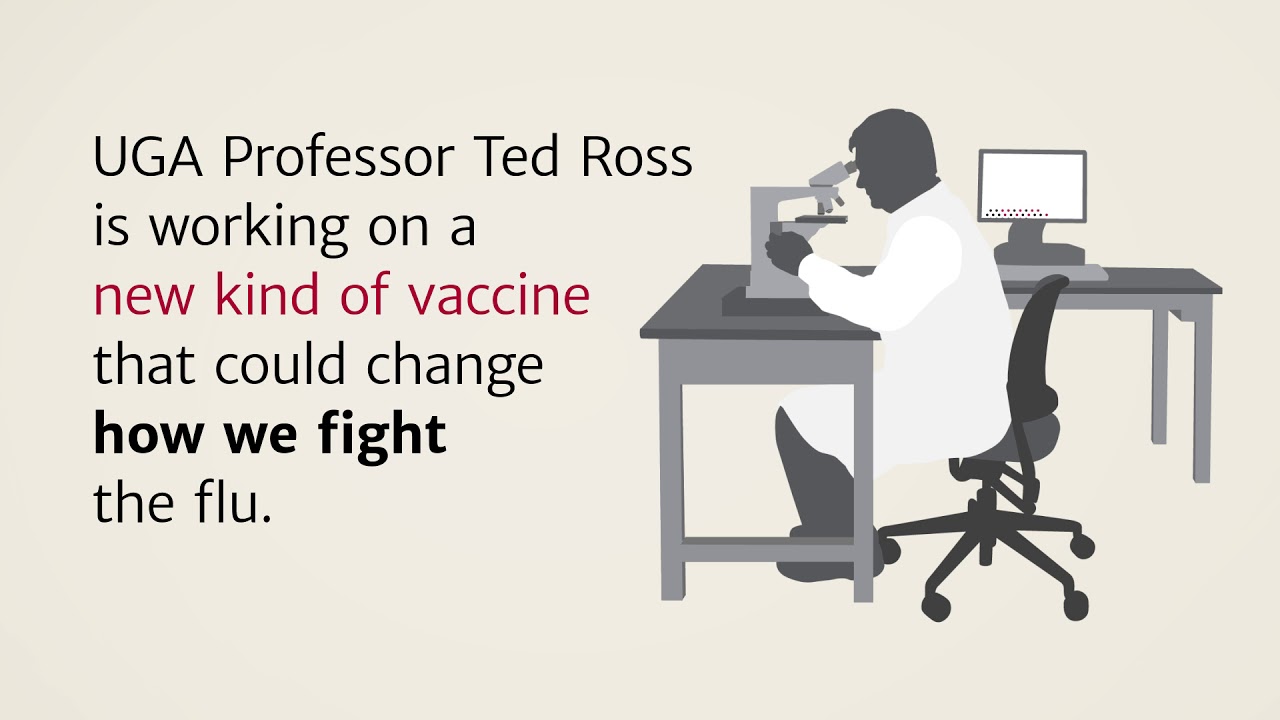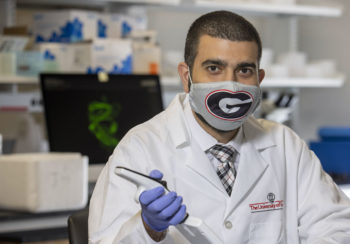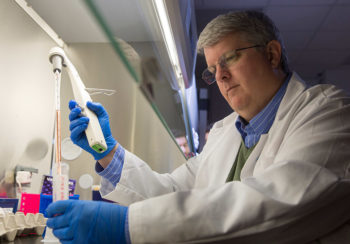Every year, flu season comes around. And every year new vaccines are developed to combat it.
Creating an annual flu vaccine involves a combination of researching current strains, identifying the disease’s historical patterns, and predicting the worldwide movement of viruses. Educated guesswork plays a big role as well.
It’s an imperfect process.
The variables can be maddening to overcome, and the logistics surrounding vaccine manufacturing can be unforgiving. Choose wisely and the flu vaccine can be quite effective. Choose poorly and a disease with the potential to kill tens of thousands in the U.S. alone could run rampant.
There has to be a better way. Ted Ross is committed to finding it.
Ted Ross, the Georgia Research Alliance Eminent Scholar of Infectious Diseases and director of the Center for Vaccines and Immunology, is developing a new universal flu vaccine that could change the way we fight influenza.
The Georgia Research Alliance Eminent Scholar in Infectious Diseases is getting a boost to do just that, with a new grant from the National Institutes of Health that is worth up to $130 million over seven years to develop a new, more advanced influenza vaccine designed to protect against multiple strains of influenza virus in a single dose. UGA faculty will lead one of NIH’s new prestigious Collaborative Influenza Vaccine Innovation Centers and collaborate with teams from 14 other universities and research institutes to create and test new vaccines that may one day replace seasonal vaccines administered every year during flu season.
“How do you deal with a vaccine if you are constantly playing catch up?” asks Ross, who also serves as director of the University of Georgia Center for Vaccines and Immunology. One of the country’s leading infectious disease researchers, Ross came to UGA in 2015 to lead its newly established Center for Vaccines and Immunology.
“We need to come up with a strategy where we will always have a vaccine on the shelf, ready to use, no matter what version of the flu came along,” he says. “But how do we make vaccines against future, variant strains that don’t yet exist?”
The diseases we’ve defeated through vaccines—polio, smallpox and the like—have one thing in common: limited or no variety in their strains. That’s why they can be eliminated with a single inoculation.
Influenza is different. It has many strains, and those strains are constantly evolving. Sometimes they evolve so quickly that a vaccine developed in February is obsolete by the time flu season starts in October.
“What we need to do is target the major subtypes of influenza and come up with a vaccine that recognizes multiple versions,” Ross says. “It may take more than one type of vaccine, but at least we would be broadly protected against the viruses that have shown pandemic potential.”

Ross’s goal is to create what some call a “universal vaccine” for flu. That makes for easy shorthand, but Ross is quick to clarify that even if a vaccine can be discovered to wipe out influenza, it wouldn’t be a single compound that’s given to everyone.
Instead, Dr. Ross’s approach is to develop a collection of vaccines. The type of protection administered to specific patients would be based on a variety of factors including geography, age, medical history and other factors. Rather than a “universal” vaccine, Ross prefers the term “broadly protected.”
“How do you deal with a vaccine if you are constantly playing catch up? We need to come up with a strategy where we will always have a vaccine on the shelf, ready to use, no matter what version of the flu came along.”
– Ted Ross, GRA Eminent Scholar of Infectious Disease, College of Veterinary Medicine

About the Researcher
Ted Ross
GRA Eminent Scholar of Infectious Disease
College of Veterinary Medicine
Director, Center for Vaccines and Immunology






